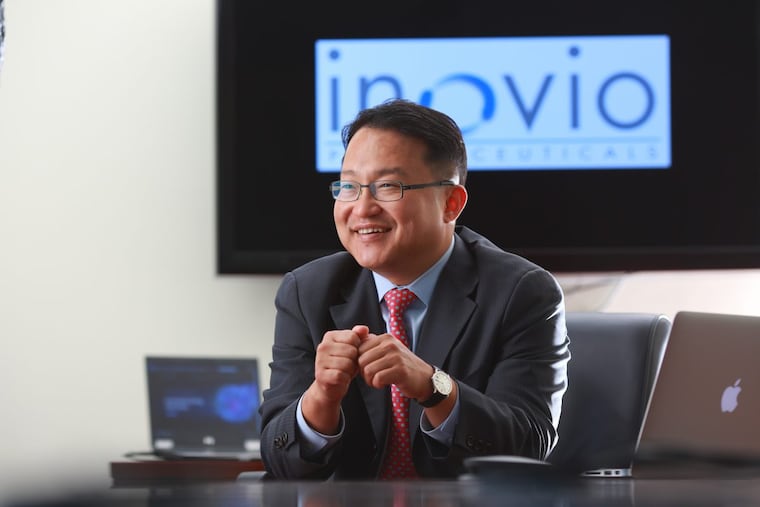Korean-born Philly entrepreneur on U.S. relations with North Korea: We need talks, not war | Perspective
It's time for Congress, including the Pennsylvania delegation, to listen to the American people and avoid miscalculations that could turn war of words into war of fire and fury.

As a longtime Philadelphia resident born in Korea, I am deeply concerned about loose talk of nuclear war with North Korea. We should be de-escalating tension with North Korea, not trading insults about the sizes of each other's nuclear buttons.
As 58 retired U.S. military leaders recently reminded us, any unilateral attack by our country on North Korean soil would put countless lives of South Koreans and Americans at risk, and wreak havoc on the global economy. It's time for Congress, including the Pennsylvania delegation, to listen to the American people and avoid miscalculations that could turn war of words into war of fire and fury.
Like many immigrants, I feel a deep sense of loyalty and patriotism to a country that has given me so much. In 1981, my mother and I left South Korea with $300 in our pocket and two bags of clothing. I entered the sixth grade in public school not speaking English and graduated from high school as a valedictorian with a scholarship to MIT. My first job out of college was at Merck's Pennsylvania research facility. In 2000 I founded my own biotech company.
My job has taken me across the world, including back to South Korea, home to technological innovations, the world's 12th largest economy, and next door to the world's second and third largest economies, China and Japan. I have seen firsthand the incredible advancements by South Koreans, who painstakingly rebuilt their country after the armistice that halted (but never ended) the Korean War in 1953. It is the first country that went from being a recipient of foreign assistance to a major donor country with a thriving democracy. By any measure South Korea is a remarkable success story.
So that is why talk of military option against North Korea is so disturbing. A military strike by the United States would immediately put the 10 million people living in Seoul, South Korea's capital, at risk. For me, that's not just an abstract number; my extended family lives in Seoul, and so do tens of thousands of American men and women who are stationed in South Korea to protect our ally.
Disturbingly, no one who says only military action will change North Korea's behavior has explained what happens after the first strike.
Who among them have seen what war does to a country? Ask any older Korean who lived through the war and they will tell you that it brings out the worst in humanity. About 1.2 million South Koreans perished as a result of the Korean War and the GDP fell by 80 percent, making the already poor country at that time even poorer. Those lucky enough to survive the immediate impact of war dealt with unimaginable poverty and lasting health issues.
My father's family came down from North Korea during the Korean War. But hundreds of thousands of people just like me and my father still languish in North Korea under a totalitarian regime hell-bent on arming itself for survival. Without talking to the regime, we risk miscalculating each other's intentions and stumbling into confrontation. It's time for the United States to pursue direct talks with North Korea without pre-conditions.
I urge everyone to call or write your member of Congress and demand talks, not war, with North Korea before it's too late.
J. Joseph Kim is president and CEO of Inovio Pharmaceuticals and on the board of the Council of Korean Americans, a national, nonpartisan, nonprofit organization of successful Korean American leaders.